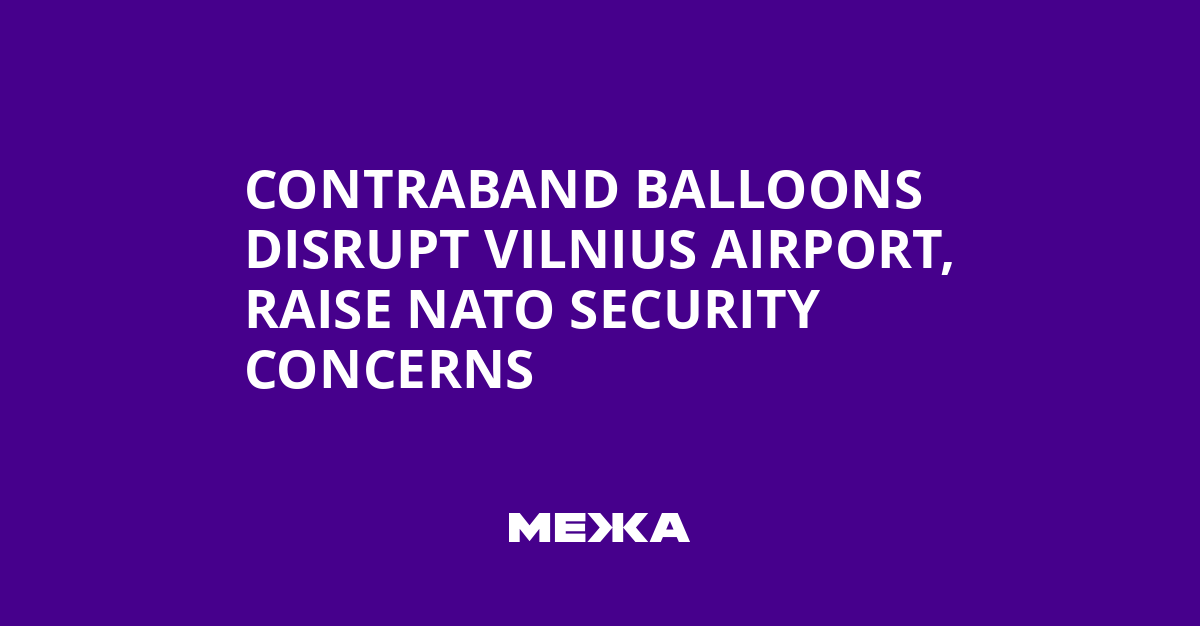Vilnius, Lithuania – according to sources, about 25 balloons, some of which were carrying contraband cigarettes, entered Lithuania’s airspace late on Saturday and forced Vilnius Airport to temporarily suspend arrivals, causing a section of the airport to be closed for several hours.
According to Lithuania’s National Crisis Centre, these balloons disrupted 30 flights, affecting about 6,000 passengers. Air traffic resumed around 4:50 a.m. local time on Sunday (9:50 p.m. Eastern on Saturday).
Although the balloons were found to be carriers of cigarettes, in light of recent NATO airspace violations in the region there remains vigilance. Some European officials described these incidents as a test of NATO’s reaction to Russia.
Actions and consequences for the region
Lithuania and the Baltic states have expressed concern. There have also been drone incidents in the region: on July 10, a drone manufactured in Russia entered Lithuanian airspace from Belarus and fell in Vilnius County.
Another drone fell at a training ground on July 28 and was discovered a week later; later the military said it carried an explosive device. Following these events, the Parliament approved allowing the armed forces to shoot down drones that violate airspace.
According to spokesman Darius Buta, two balloons flew over Vilnius Airport, and more than twenty over the wider Vilnius region. The sightings lasted from 20:45 Saturday to 04:30 Sunday.
Border police collected 11 balloons and about 18,000 packs of contraband cigarettes in various locations, Bute said. Vilnius is located about 40 kilometers from the Belarus border – an ally of the Russian Federation. According to Bute, Belarusian smugglers are increasingly using balloons as a cheaper alternative to drones for delivering cigarettes to the EU.
Similar balloon incidents were recorded earlier in August. Last year Lithuanian services intercepted 966 balloons from Belarus; this year – 544.
Both contraband balloons and drones are criminal activity, but not as provocations or acts of sabotage,
– Darius Buta
This incident underscores the need to strengthen airspace control and bolster coordination among the Baltic states, NATO, and the EU in the fight against illegal shipments.
